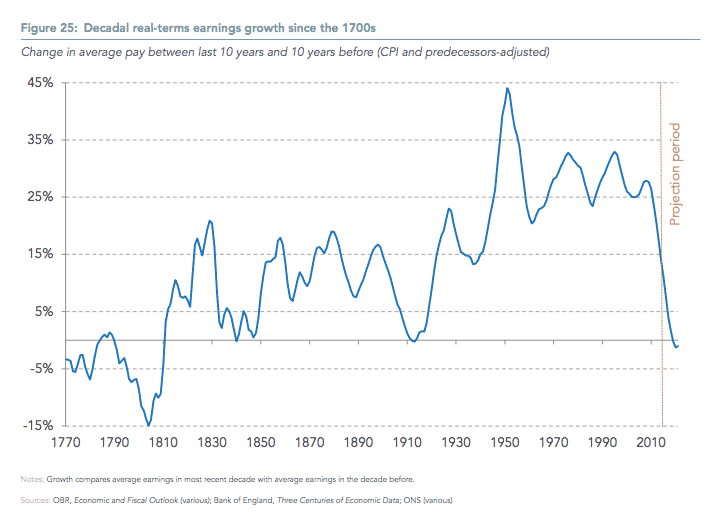The macroeconomic projections that underpin the UK budget make for truly grim reading. The Resolution Foundation has produced a powerful analysis of the macroeconomic outlook and the distributional impact of proposed tax and benefit changes. http://www.resolutionfoundation.org/wp-content/uploads/2017/03/Spring-Budget-2017-response.pdf
The headlines: The oulook in the short-term is a bit better than in November 2016 but not over the longer-term.
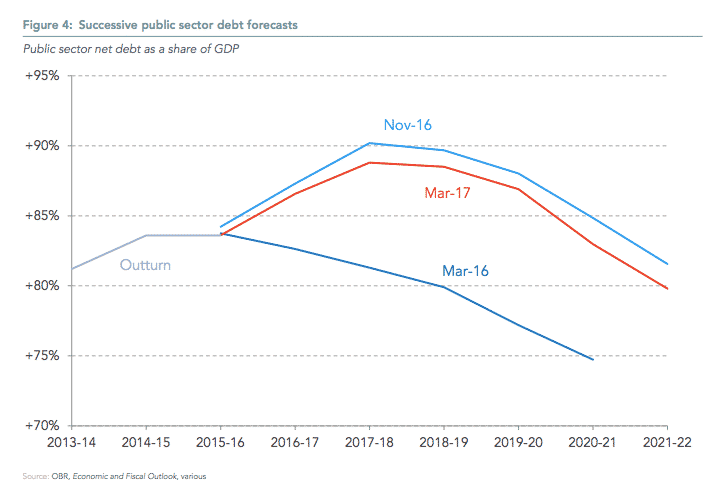
The recovery in GDP per capita, productivity and wages continues to be agonizingly slow.
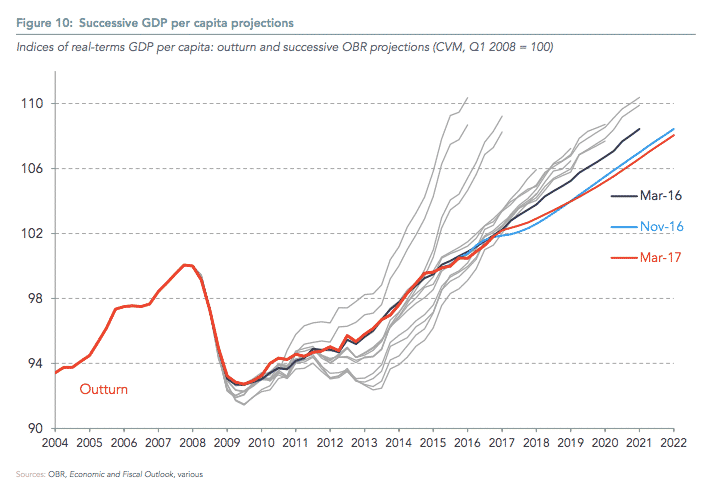
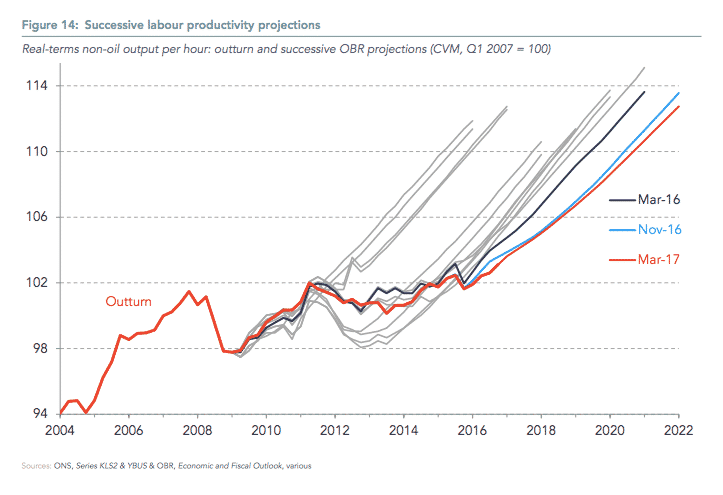
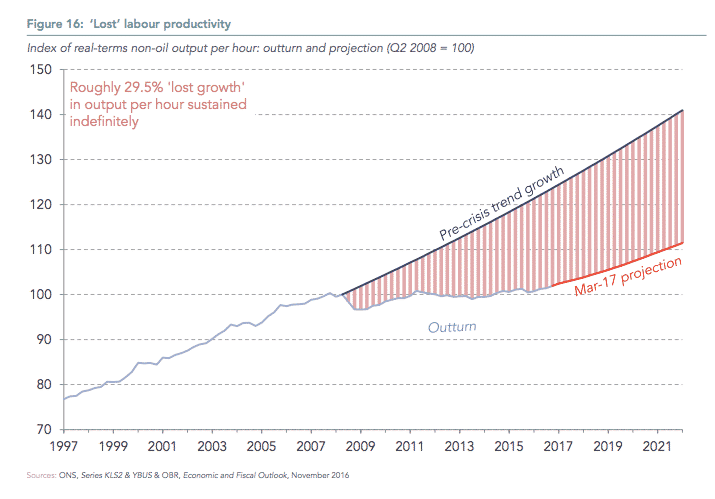
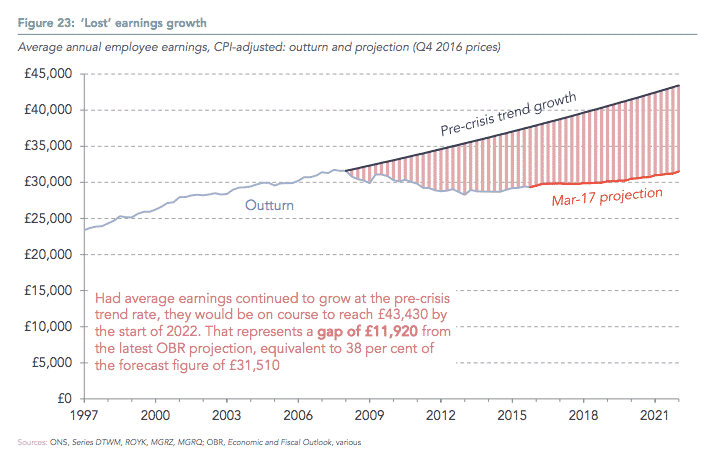
The recovery from the 2008 recession is far slower than that from either the Thatcher recession of 1980 or the Gulf War recession of 1990.
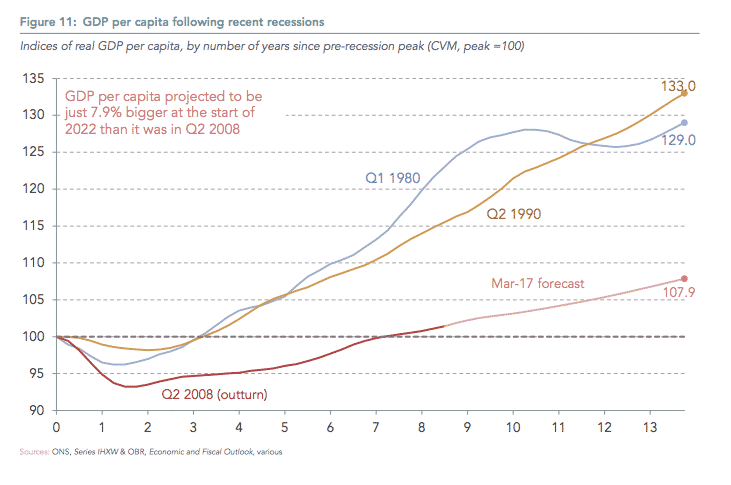
As a result, real wage growth is the worst in more than 200 years! The historic precedent for our current situation are the Napoleonic wars and the counterrevolutionary politics of that era.
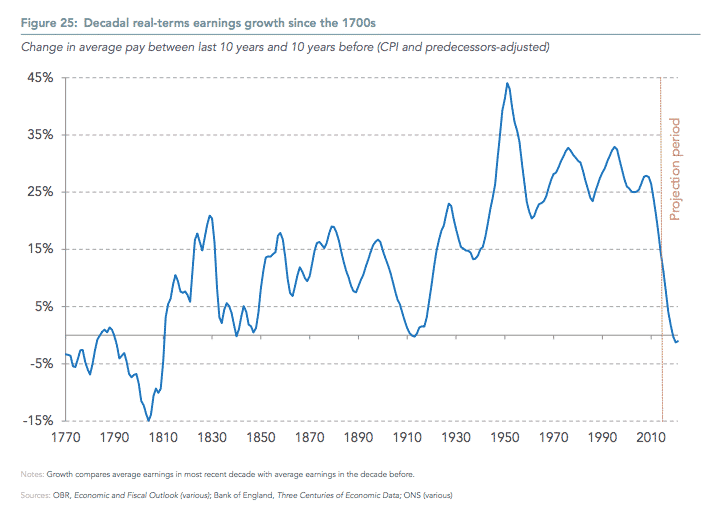
The distributional consequences are serious and are compounded by government policy between 2010 and 2015. May has announced a break with the old policies of the “elite”. Her speech to the October Tory party conference is widely seen as heralding a new brand of Toryism. The changes to National Insurance contributions for the self-employed in this week’s budget are progressive and might be seen as a downpayment on May’s “one nation Toryism”. But given the huge clamor of protest they have stirred up they may well be reversed. In the mean time, welfare cuts adopted by Cameron and Osborne in the summer of 2015 following their election victory and the end of the coalition with the Liberals continue to threaten families at the bottom of the income distribution with real hardship.
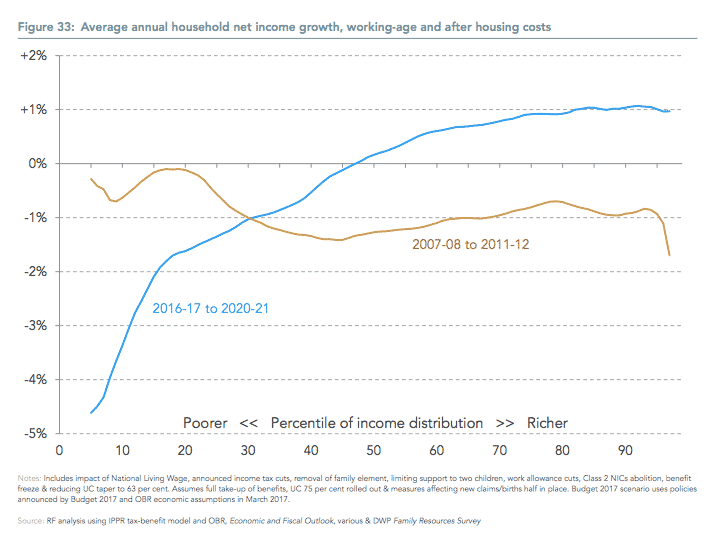
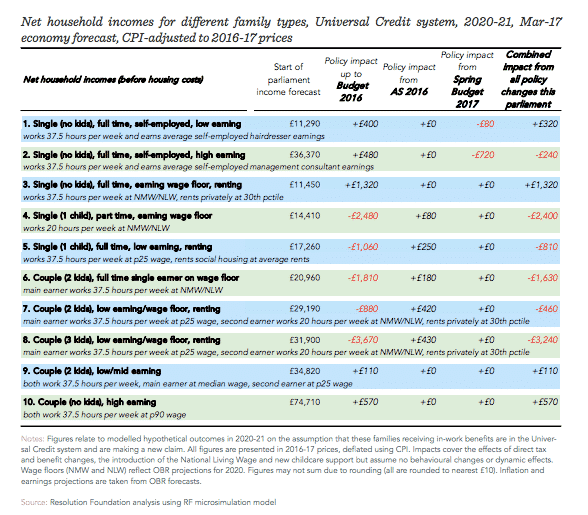
And over all of this hangs the huge uncertainty of Brexit!
